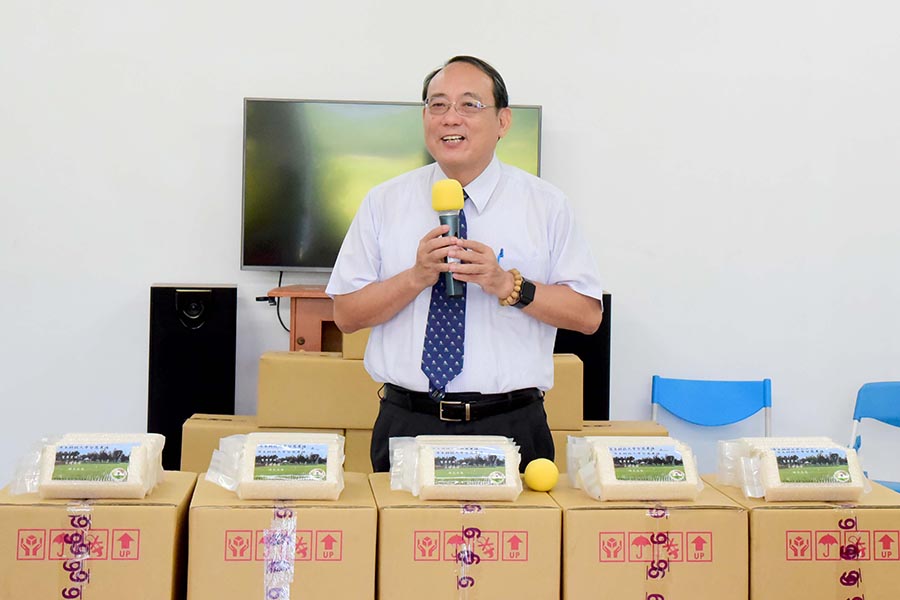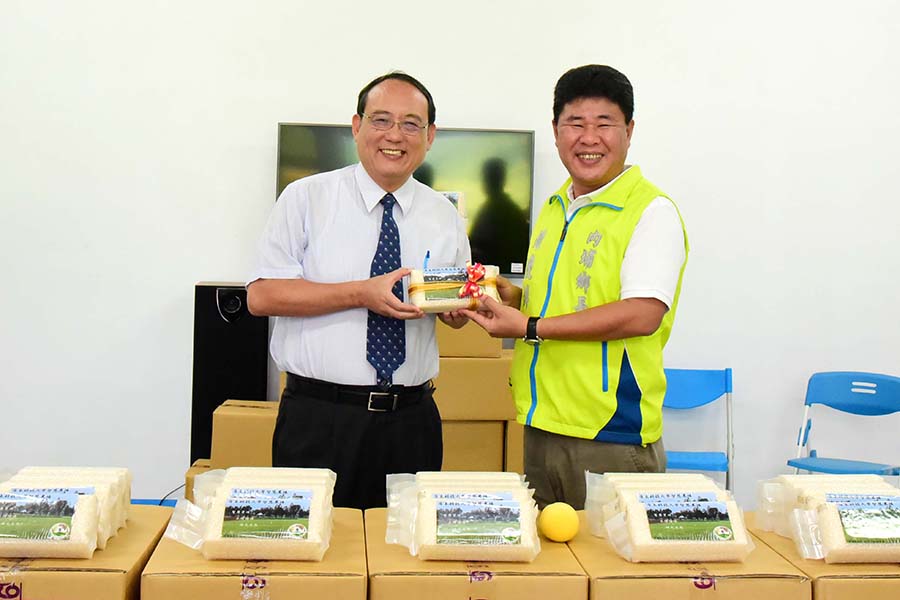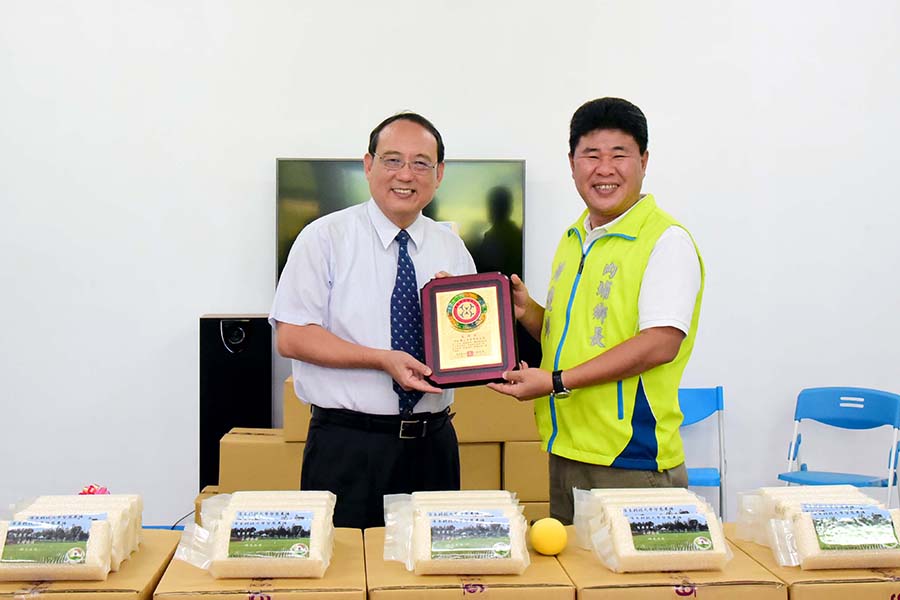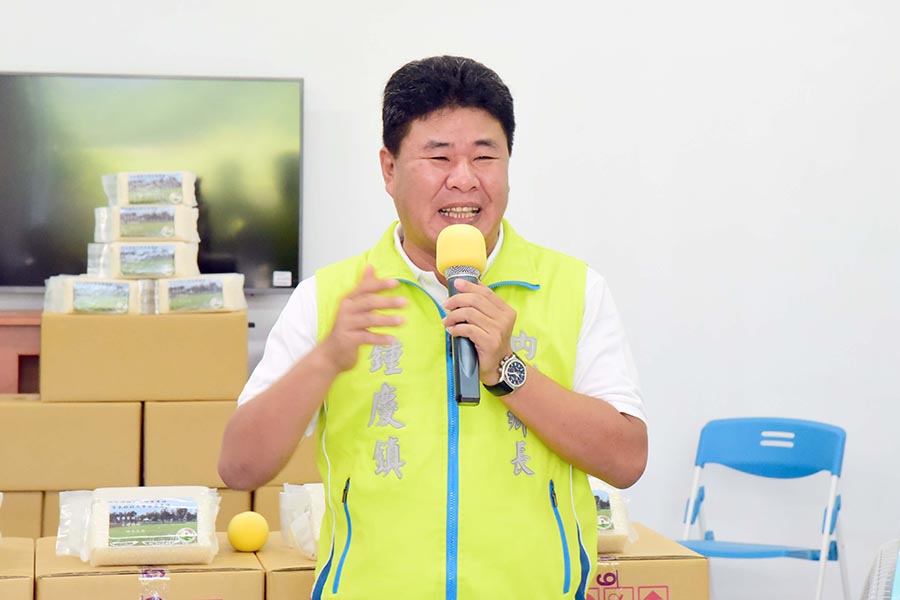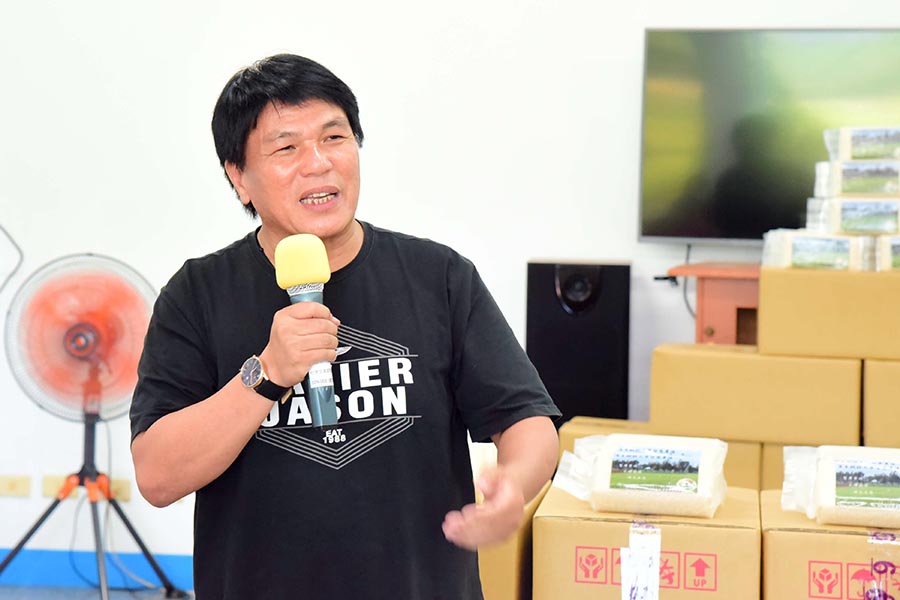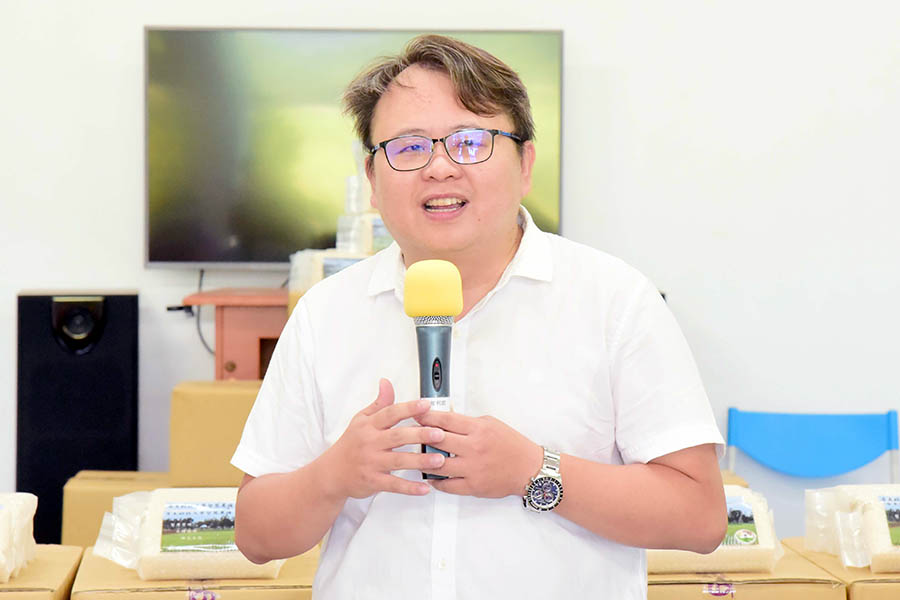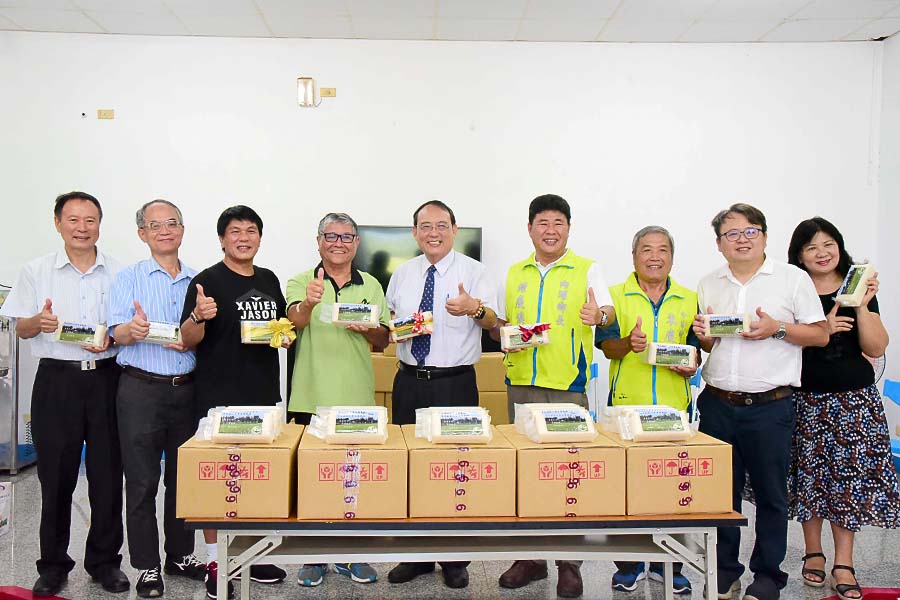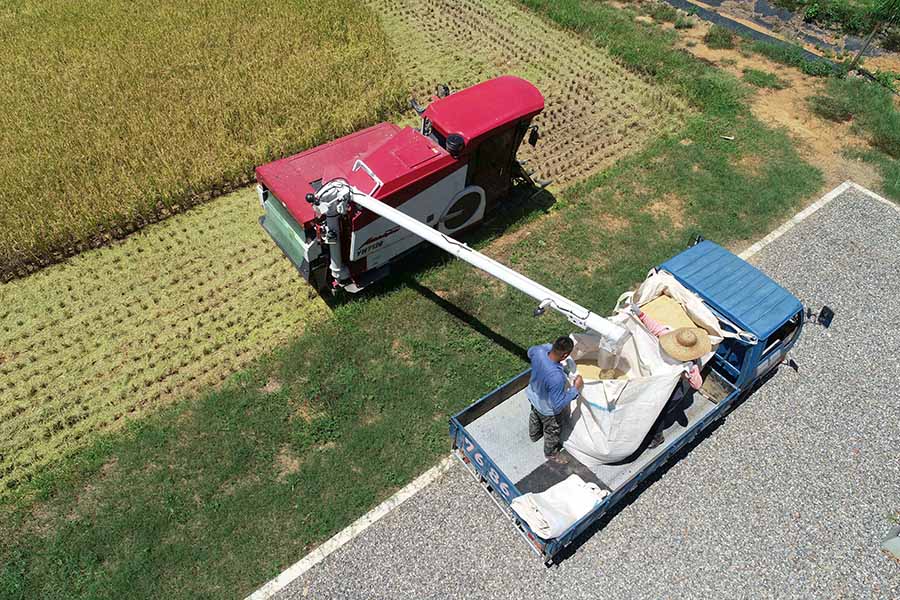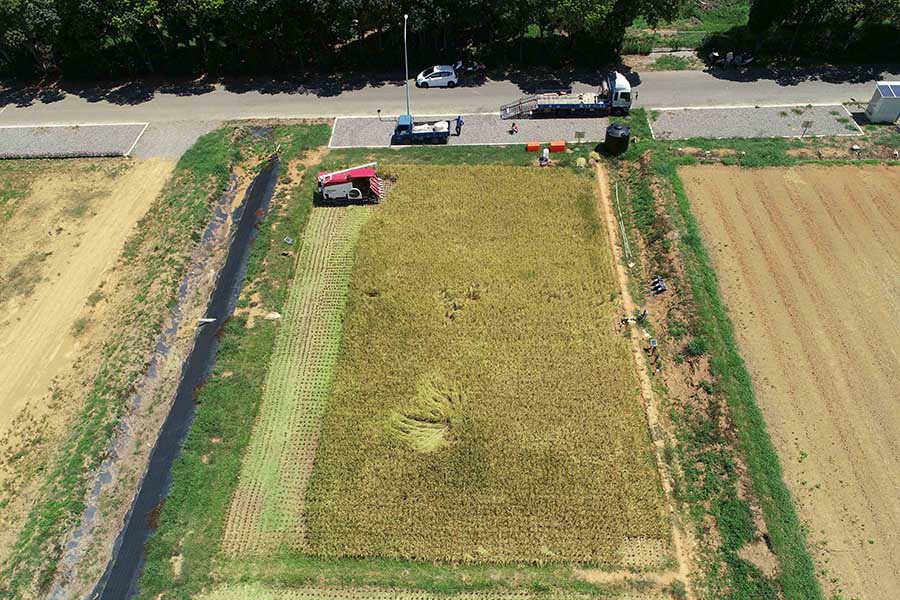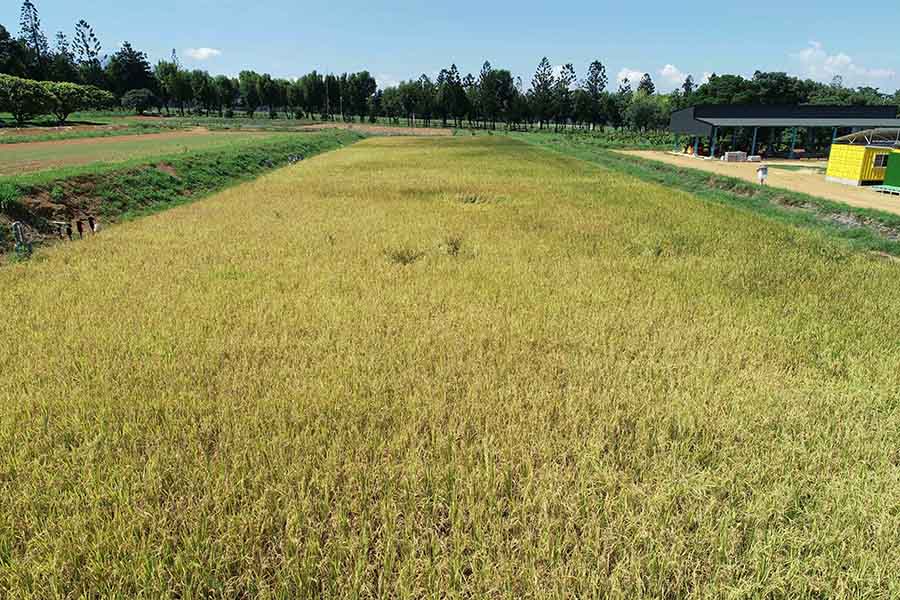Using a variety of environmentally friendly methods, such as smart management and Green ecology, the NPUST Center for Smart Farming is making leaps and bounds in its efforts to improve rice production. In an expression of gratitude to its neighbors, on July 21, the university offered 500 kgs of the rice it produced as a gift to families in the Laopi and Chunglin village.
A ceremony was held at the Laopi Activity Center, with university and government representatives in attendance, including NPUST President Chang-Hsien Tai, Center for Smart Farming Director Chung-Ruey Yen, Neipu Township mayor Ching-chen Chung, Social Welfare Director Yu-Kuei Chung, and the village heads of Laopi and Chunglin.
“Good things are shared among good friends”, NPUST President Chang-Hsien Tai emphasized using a common expression. He continued by pointing out that “the students in the university continuously receive care from the residents of the neighboring communities— and now, the pesticide-free, organic, highly-nutritious rice produced by NPUST students is being given back to those communities. We hope that NPUST, Laopi Village, Chunglin Village and Neipu township can work together for prosperity.”
Impressed by NPUST’s advanced farming techniques, the mayor of Neipu Township explained that the rice from the Smart Farm will be given to 162 senior households in the township. He added that “we are thankful that NPUST is a practitioner of University Social Responsibility—and we hope that in the future, they will be able to use their expertise to help improve the livelihoods of farmers.”
Closer to the operational end, Assistant professor Tzu-Che Lin of the Department of Plant Industry explained that “with consideration to changing climate conditions that leave water in short supply, we have developed a new farming method that allows rice to grow very well with much less water. Now we want to take this Basmati rice which was grown on land in Neipu and give it back to the local villagers.”
Agriculture is the main focus of study at NPUST and, as a forward looking school, NPUST is working to get ahead of such issues which are leading to diminished rice production in the Taiwan, such as lack of manpower due to the aging of society, and water shortages, at certain times of the year.
The university is cooperating with the government to develop smart agricultural production and circular economies. With support from the Ministry of Education, the university has also established demonstration sites, such as the Center for Smart Agriculture, to help promote smart farming practices. Professor Yi-Lung Yeh, who serves as the director at the Graduate Institute of Landscape Architecture and Recreation Management, is conducting experiments at one of the locations. Their works is combining smart monitoring with the water-saving irrigation methods and is allowing rice cultivators to use 60% less water for equivalent yields.
In pursuit of sustainable development, NPUST is promoting practices that take ecological chains into consideration. For instance, to help farmers stop relying on poisons to protect their crops from rodents and birds, researchers are introducing specially designed perches that attract specific types of raptors which can naturally take care of such problems. This way, they can get the results they need while also maintaining a balanced ecosystem. For NPUST, pursuit of sustainable development means making the world a better place. This begins by caring for the neighboring villages as it educates students on friendly farming practices. The current harvest of rice that the university is sharing with its neighbors was presented as a token of its commitment to good practices and university social responsibility.

